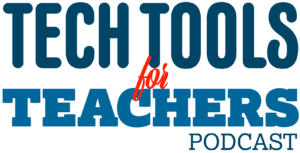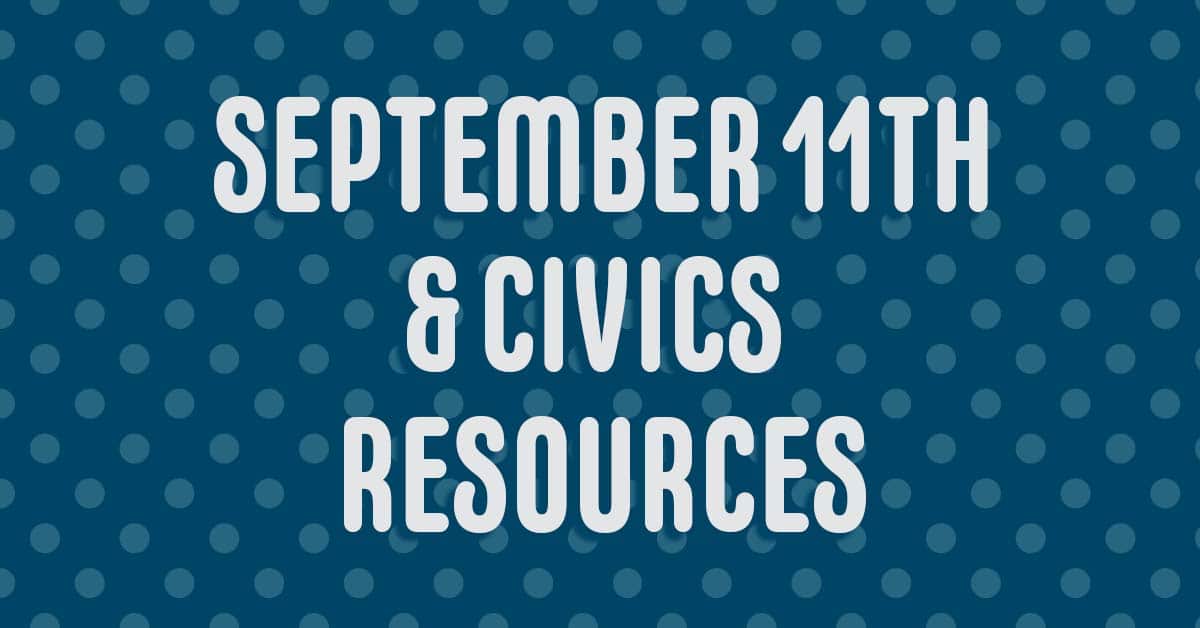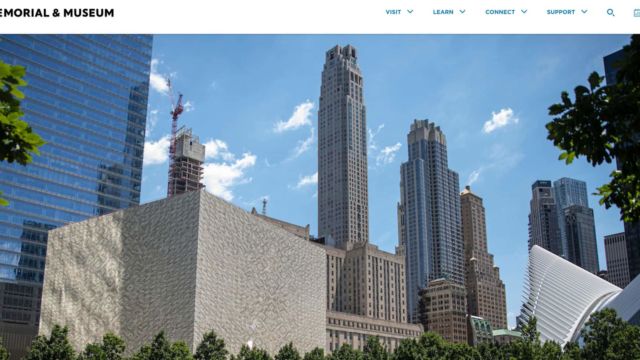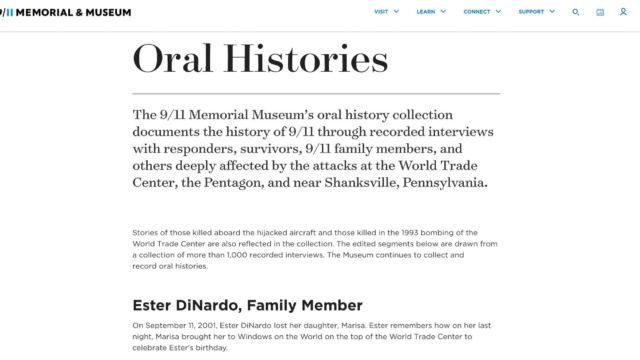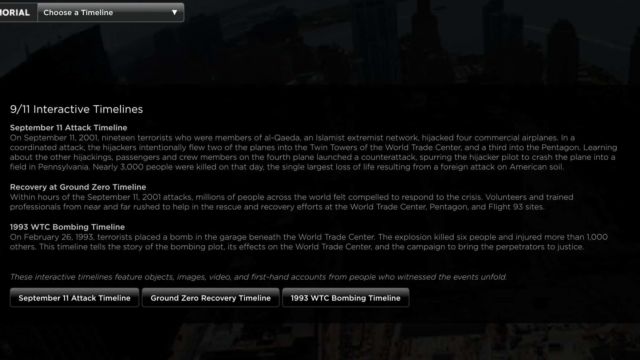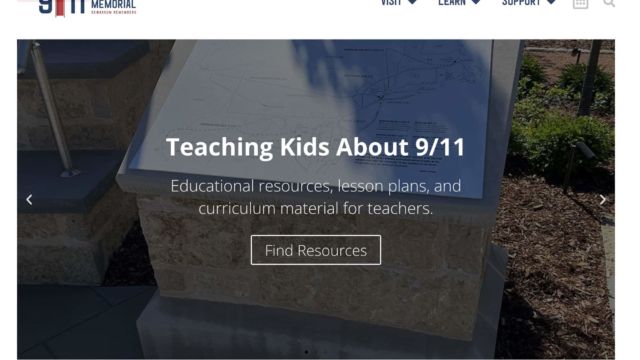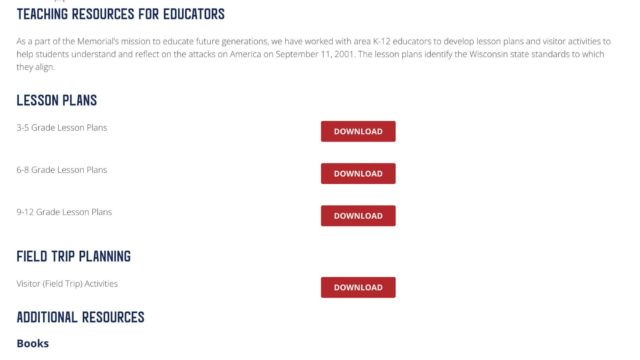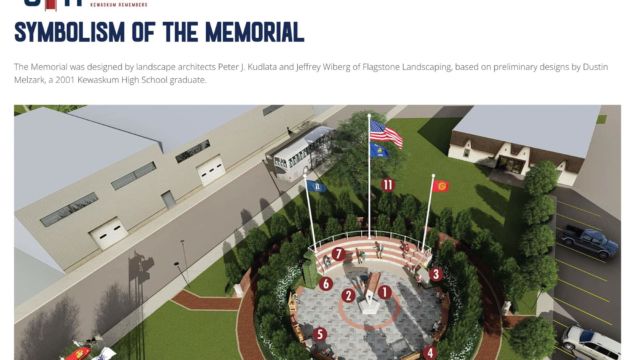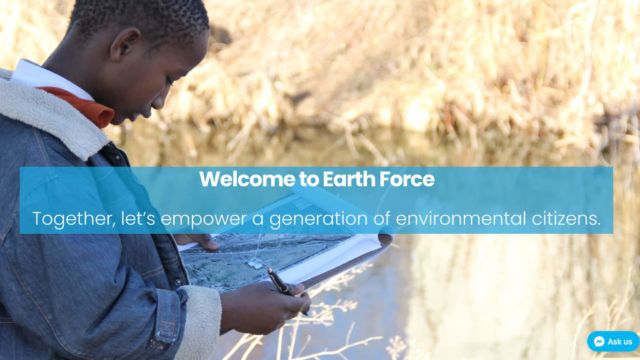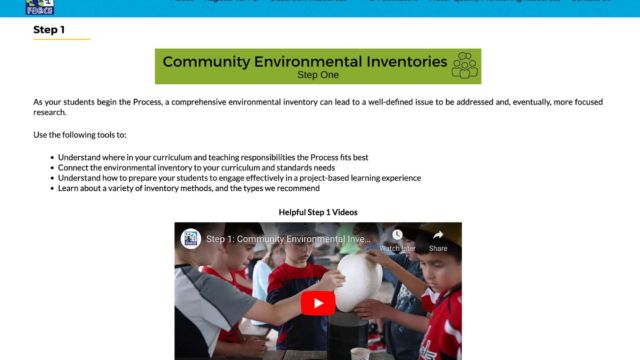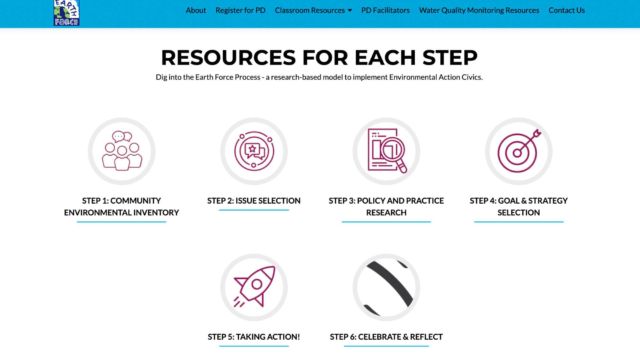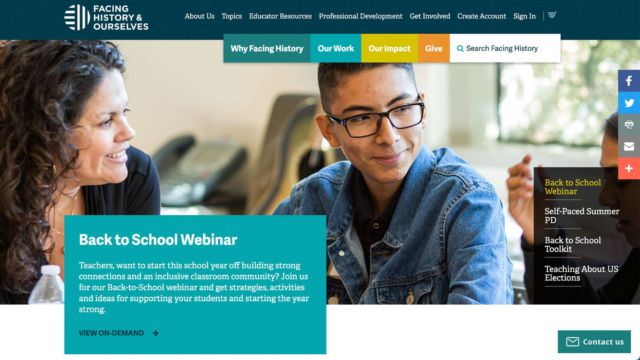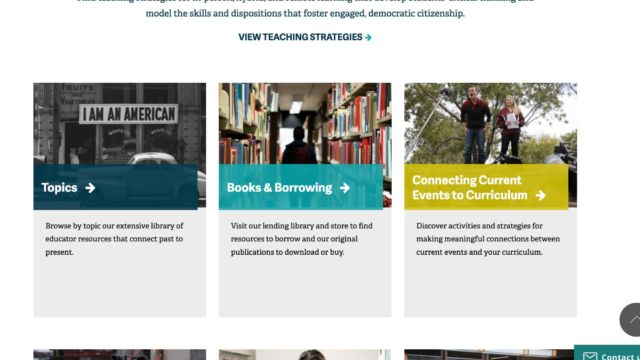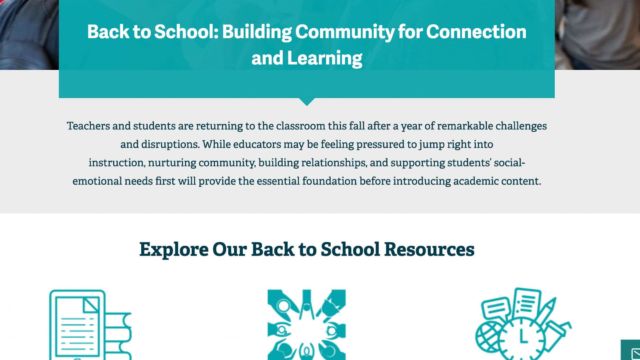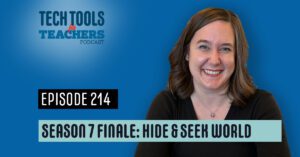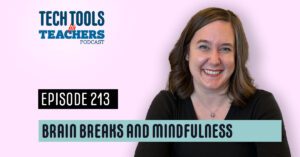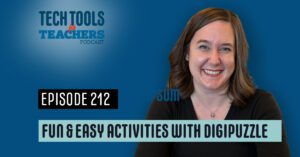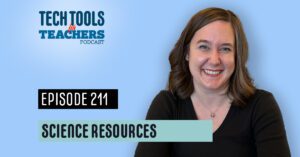Shanna Martin 0:19
Thanks for listening to the Tech Tools for Teachers Podcast, where each week we talk about a free piece or two of technology that you can use your classroom. I’m your host, Shanna Martin. I’m a middle school teacher Technology and Instructional Coach for my district.
Fuzz Martin 0:33
And I’m her producer and husband, Fuzz Martin, and I’m not a math teacher. But I do like to solve problems.
Shanna Martin 0:39
Oh, that was really cute. Thank you back to school of school planning going in? Yes.
Fuzz Martin 0:45
I feel like I’m off my game. Season Five. Season Five. Here we are.
Shanna Martin 0:51
We are here. Sorry, to the next school year. Yeah. So many things going on. Right. It is fun. I’m excited. I mean, I’ve been working since September 8. September. That’s right. Again. I’ve been working since August. Well, yeah. Feels like I’ve been here for a month. You’ve been doing mostly PD, right? Yeah. Yeah. workshops across the board for inquiry and for cool, fun things, and especially pretectal. Yeah. And digital citizenship.
Fuzz Martin 1:31
Did you have anybody take you up on your offer to help them with their PD
Shanna Martin 1:37
people in my own district, but not outside of my district. So I did make little certificates, though, for anyone who’s certificate
Fuzz Martin 1:43
[email protected]. If you’ve been listening to the show for your professional development, some schools do a lot of podcasts is PD hours. So and each of these but 15 to 20 minutes long.
Shanna Martin 1:57
I know some time. Yeah. So yeah, it’s kind of fun. I’ve done I did the summer workshop and or the summer podcast episode, which we had quite a few downloads, which is always super fun that people jump in over the summer and catch up on things, I think, and shout out to Portugal. Yeah, a lot of listeners in Portugal, which is super fun. I love that. Yeah. And then I learned about other parts of the world too. So it’s kind of
Fuzz Martin 2:23
we could translate this into Portuguese. I’m just kidding. There’s a lot that goes into this. Behind the scenes, though. Just add another
Shanna Martin 2:31
thing. Yeah, we do have a couple of tools coming up this season, though, that already talked about that, like translate easily, which is kind of fun. So I will be sharing those in upcoming episodes.
Fuzz Martin 2:41
And to help improve accessibility. We’ve been putting transcripts in these shows now, using an app called otter, which I believe we
Shanna Martin 2:49
talked about, we’ve talked about it before. So yeah. Oh, yeah.
Fuzz Martin 2:53
So they’re not all on that the whole back catalogue isn’t trans transcribed yet, but
Shanna Martin 2:57
we’re working on it working on it. So just you know, your
Fuzz Martin 3:01
time because, you know, it’s excellent. Takes a lot of time to do that. But the new episodes will have
Shanna Martin 3:07
awesome. Yeah. Hey, sorry, here for season five. And it is Episode 125, which is also is crazy to me. We did do
Fuzz Martin 3:20
virtual vacations. Last year, at 123. And then we did virtually the end
Shanna Martin 3:25
of season four. Yeah. And then we did our virtual vacations, which was 124. Yep. Yep. And now we’re at 125. Okay.
Fuzz Martin 3:32
I was like, we always do that, like one mid summer.
Shanna Martin 3:35
And I was really excited because the end of last season was 123. Episode. Season. Four. Yes. At 123. That was my very sparkly end of Season thing. Yeah. Yes.
Fuzz Martin 3:45
All right. We’re way past. We’re looking to get to 234 of season five.
Shanna Martin 3:50
Yeah. All right. So episode 125 of the EdTech tools for teachers podcast, we are discussing resources that should be hopefully really super helpful at the start of the school year. Yeah, we start officially on September 1, always, in our district. And as a teacher, I’m always like, Oh, my goodness, I have do all of these things. And then also I teach social studies. So I talked about the events of 9/11. And that oftentimes, with Labor Day in here is like the sixth day of school, like the way things fall. And so I thought it might be helpful to have some resources available for teachers, not just in social studies, but across content areas, if you’re supporting 911 lessons, and so I have a collection of resources for that along with other civics across content areas because I read a really awesome PD book this summer and I presented on it and there’s a lot of cool resources out there so well, I know our goal is always wanted to talk to we have to be talking about for today. I’m sorry, but I couldn’t
Fuzz Martin 4:56
I dropped I dropped an extra one.
Shanna Martin 4:59
And I was like, Well, I have that as resources on there. But yeah, we’ll talk about it too. So moving forward, there will be only one or two unless I get really excited about something. But I have four websites today. Yeah, hopefully very helpful. They’re all pretty good. Yeah, they’re awesome. And they’re great for start of the year, and some things that you need to cover. I know right off the bat when we get back to school. So we will be starting with 911 resources here. So we’re gonna start with the first one, which is a go to that I use for some content is the 9/11 Memorial & Museum, it’s the website that they have created in New York City, yep. 911memorial.org. Correct. And this site has so many things, because it’s also the site that they use for visitors when they come there. And they visit. And it goes through all of the different programs and, and things like that. And there’s a collection of resources for teachers, I will point out that not everything is free on this site. So while we like to point out the cool free things, like their virtual tours, they asked you to pay for them, because I know that they put a lot of work and things like that into them. But yeah, they’re huge. But if you, I know budgets are always a thing, if you aren’t able to do it that way. There are lots of other free resources. So if you go to 911 memorial.org/learn, or if you’re on the homepage, you just click learn, you will see a drop down of all kinds of resources. So they have programs, you can do all kinds of things, you will find, like you start from the left and kind of work your way over, they have these really cool interactive timelines that I have found very helpful. With students understanding the attack timeline, they have recovery at ground zero. So that’s kind of neat, because I like to show my students then once all of this happened, what happened starting September 12, and then moving forward, and it goes through. So a lot of times when I’m teaching September 11, in the events, we talked about them before, but then we also talk about what that led to afterwards, with our country and things like that. So they have a really neat digital timeline that they have images of, and you can click on it and zoom in on stuff, which is really neat. That’s super useful, that I’ve used in my lessons before. They have different histories. So they have, if you click on them, they have different audio interviews of different people like if firefighters and people that were there, and first responders and survivors and those types of things, so you can hear their audio interviews of what happened. They have specific lesson plans for students and teachers. So if you click on Lesson plans, you can go through and see there’s an essential question, which I appreciate the graded setup for the theme. And then the lesson plans that break it down from there. So symbolism and all different types of things, vocabulary is laid out. And even if you don’t have time to go through a full lesson, I know, especially in elementary grades like you are pressed for time those first few weeks of school, but just introducing your students to these events, you can break them down quite easily and just do maybe a half an hour lesson instead of spending a full day on it, depending on you know, what your timeline is in your school as well. If you are a resident of the state of Wisconsin, for another 9/11 resource is Wisconsin911memorial.com. And under there, we happen to work a lot on this project.
Fuzz Martin 8:41
So I’m the president of the Wisconsin 9/11 Memorial. It’s a really cool place. It’s located in Kewaskum, Wisconsin, we opened it in 2021. But part of the whole Memorial there was not just building a memorial, but also helping to educate students about September 11th, 2001. And the events that happened afterward. Right? So you helped out by developing lesson plans that we have on the website, which are age appropriate, right? Correct.
Shanna Martin 9:10
So what’s neat about this is even if you are not able to bring your school I mean, the the field trips are free, there’s you know, programs, just contact, send an email, and you can set up a field trip, I’ve been able to take my students locally, it’s easy, we just throw on a Boston as a part of one of our field trips. But if you’re not able to get to Kewaskum for a field trip, you definitely have access to so the lesson plans are set up by grade level. You can click on it, you can download the lessons. What’s cool, I shouldn’t say like I’m talking about the lesson plans that I wrote. They are standards based, but any of the tools in the lesson plans you can use as needed in your classroom. So there’s timelines that have been created. There are maps that connect students from Wisconsin to New York, how far that is what that looks like, because it’s not always easy understanding and read addition to our state, where things are how far this is, wait, there’s a relation to Wisconsin to Afghanistan, like how far that is what that looks like in a map. So there are different pieces to this, that even if you are unable to do the whole lesson, they’re a reflection questions. There’s other pieces to the lessons that you can use. There’s also field trip planning, if you are able to do a field trip, there’s a scavenger hunt that goes along with that on the field trip. And then there’s a huge collection of resources. So there’s books, chapter books, picture books, the links to them, I believe they linked to their Amazon accounts if you’re able to order them. There’s also additional links, like we just talked about the 911 Memorial Museum in New York City. That link is on there as well, along with other Memorial resources, databases, World Trade Center memorials. So all of their website, links are on there as well. So if you’re teaching about 911, if you need a one day less than a half an hour lesson or to span over a few days, maybe Zine 11, this year happens on a Sunday, you might do a Friday lesson introducing and talking about it. And then the day after and what we’ve done, you know, so all of those resources are there. So between the the New York 911memorial.org website, or if you’re a specific to Wisconsin, or Midwest, and you want to connect it to your students, Wisconsin911memorial.com.
Fuzz Martin 11:19
And you can if you’re if you’re not in Wisconsin, you can look at the lesson plans and alter them to be to fit your state. So how far away is New York from the city that you’re in? Or the area that you’re in? And then a lot of the other lessons in those translate?
Shanna Martin 11:38
Yes, please. Oh, they’re not specific to Wisconsin. So they talk about like symbolism within your own community. They talk about and as the lessons for older students, depending on your grade level. So if you’re doing like 9-12 lessons, that overview is going to be like about students will understand the impact of like counterterrorism within the United States. What’s happened afterwards how our country is rebuilt, like those types of things. So it’s not just specific to an area. So the lessons definitely lend themselves to different states and other places that you can learn from as well. So yeah, so it’s a little like 9/11 plug that always comes up so fast, and the school year and until I got involved in this project, I was always like, Alright, I gotta teach this day six of school. And I always take a pause, and we spend a day on it my classroom, but it was also okay, I kind of need shorter lessons, because I’m in the middle of a unit. But also I want to make sure that it’s acknowledged even though it’s like the sixth day of school, always. So yeah.
Fuzz Martin 12:38
Also on there on the site, when you go to the Wisconsin 9/11 Memorial site, there are age appropriate books for different levels as well. So picture books all the way up to workbooks.
Shanna Martin 12:47
Yeah, so that’s an apt resource set. Yeah, that that I had mentioned. Cool. Yeah. So along with our doing like civics across the content areas, to other sites that are super helpful when it comes to making students more aware of civics or just naturally teaching civics lessons in your classrooms. There is a site it is called Earth force.org. So E-A-R-T-H-F-O-R-C-E.org. And what’s cool about this is the goal is it, you know, they’re like tagline is together, let’s empower generation of environmental citizens. But if you do any sort of inquiry, learning in your classroom, and just have students kind of dig in on different collections of information, there are so many cool resources in this website for students, and it’s broken down by step. So if you just want to get your students more connected to the community, and realizing like their first step is Community Environmental inventory. So making students connect to or helping students I should say connect to what’s going on in the world around them. It’s a project based experience, they kind of inventory methods of types of if we’re looking at floodwaters if we’re looking at just general like use of different environmental aspects or how things are set up within your community, water quality, waste, flooding, risk, like these can connect civics lessons to science that connect to them to like language arts, and math, and there’s so many cool, different resources. So what they have on this website, just go to the homepage, click on like classroom resources, and then they have it step by step. So you can find specific issues if you’re looking for laying something out for your students that you really want to cover within your classroom. And again, it goes like civics lessons, it talks about like the democratic voting process all the way through water quality, like there’s so many ways of building these civics lessons and supporting your community. In these lessons, policy practice research they have taking actions Celebrating reflections, they have video resources. And then they also have professional development for teachers. So you can do that. They have water quality monitoring resources, which I know, our science teachers dig into quite a bit, you can register for PD with them. So there’s just a bunch of different ways of connecting students to different civics lessons, but also through different topic areas, which is pretty cool. And ways of connecting students closer to their community, just making them more aware of the world around them within their area, which is pretty cool. And actually, I found this website, this summer did a little PD reading on a plane. The book, I found this one, which has a ton of different websites is called becoming active citizens. And so it’s just all kinds of ways of tying citizenship into lessons, which is pretty cool. So that’s where it’s earthforce
Shanna Martin 15:56
as the website and you go, earthforceresources.org would be if you’re gonna look specifically for classroom resources, okay. And again, they have like their learning goals, our partnerships, project management, you know, like, how to assess students in this way too, and just click on them, and they take your different ways of getting students to learn about their communities and connecting, and how to make communities run more efficiently, which is pretty cool. Right? Yeah. So earthforce is that sites and it’s very cool. And our last one today, because you know, really, for sites that are going to help our students with civics across the content area, the last one is called facing history.org. So facinghistory.org, facinghistory.org. And this site awesome, also found this reference in this book I read, they have all kinds of great, both teacher resources, webinars, and self paced PD and things like that. But what I appreciate is they had cool back to school support for teachers. And as we’re coming into school, I know it runs like, Okay, we still have a little time, but we don’t really because it’s the first day of school. And depending on when you start it, we’re in it already, maybe a week or two. So what’s nice done under educational resources. Across the top, they have all these choices. You can pick topics and you can dig in. But what I found is educator resources, you can pull up something that’s really specific, or just general topics of interest, books that are worth borrowing, connecting your current events to curriculum that you’re teaching and Demand Learning. But if you click on topics, when you’re in that area, it will give you a specific topics from like democracy and civic engagement to bullying to the Holocaust. I mean, they really do cover everything in here. But if you click on current topics, then it talks about going back to school, like starting some journaling. What are you going to do to support your students and their back to school and making a connected community. So there’s just a ton of educator resources available, that are supportive and classroom materials. And you can choose if you want classroom specific materials, versus events and training for you as an educator, which I appreciate, it’s not always just your stuff for the kids. But also you can watch a webinar and learn some more information for you or how you address change or different things like that in your classroom. So basing history ourselves is the website.org. And again, lots of back to school things gathering communities, connecting students together, and then resources for both teachers and teachers themselves and teaching in your classroom. So there you have it. Yeah, just a few things. You know, along with all the professional development doing and getting your classroom ready, and just being fired up for the new school year. Season Five,
Fuzz Martin 19:04
Yeah, we’re getting started with a bang.
Shanna Martin 19:07
On that note, thanks for tuning in. This has been the tech tools for teachers podcast. If you ever have any questions, you can find me on Twitter at Smartinwi. And if you want to get more information on the links of the technologies, and discuss in this episode, please visit smart nwa.com If you’d like to support the show, please consider buying me a coffee or two you can visit buy me a coffee.com/smartinwi or visit smartinwi.com and click on the cute little purple coffee cup. Your donations help keep the show going new episodes each week. Thanks for listening, go educate and innovate
Fuzz Martin 19:42
The ideas and opinions expressed on this podcast and the smart wi website are those the author Shanna Martin and not have her employer prior to using any of the technologies discussed on this podcast? Please consult with your employer regulations. This podcast offers no guarantee that these tools will work for you as described, but we sure hope they do.
Transcribed by https://otter.ai
